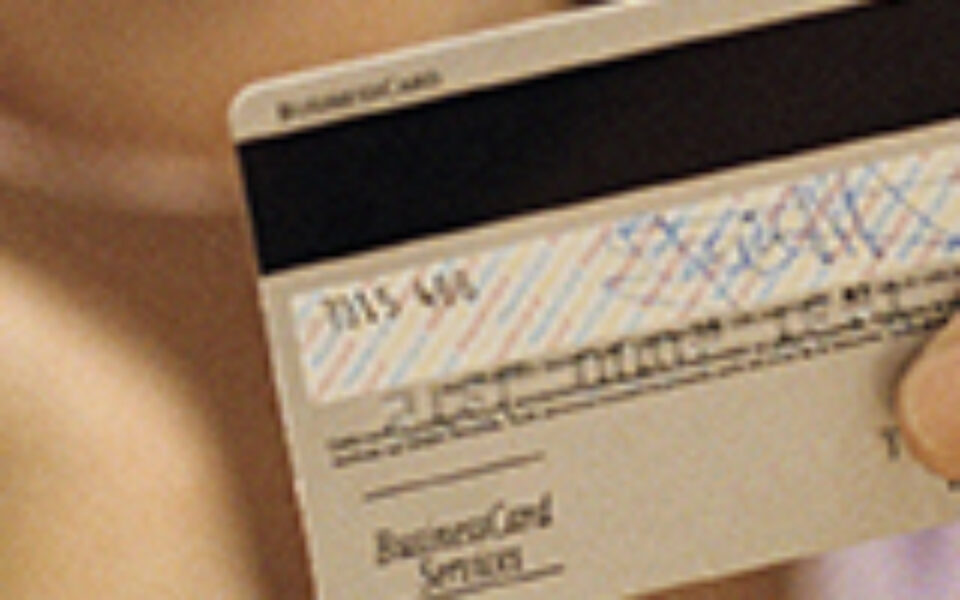The Market Place Fairness Act – How Will It Affect Your Business?
By Camille.Mule', Manager, Tax & Business Services

There have been hundreds of articles recently regarding The Market Place Fairness Act (“MFA”), but just what is it and how will it affect your business? If enacted, the MFA will allow states to require certain online retailers to collect sales and use tax on sales delivered in the state. The Act has passed the U.S. Senate and is now headed to the House of Representatives for a much anticipated debate and likely revisions before it will be voted on. Currently, the Act has been referred to the House Committee on the Judiciary for a review of the constitutionality of the measure.
Background
Under present sales and use tax standards, a state cannot force an online retailer to comply with its sales and use tax laws unless the retailer has a physical presence or meaningful connection to the state. The standard is a result of a 1992 U.S. Supreme Court case decision, Quill vs. North Dakota and continued state creativity in finding meaningful connections. In Quill the court ruled that requiring sellers without a physical presence in a state to collect the state’s tax was in conflict with the U.S. Constitution’s Due Process and Commerce Clause and that the existing sales tax system was too complicated to impose on a business that did not have a physical presence in the state.
In the 21 years following Quill, technological changes, and the rapid growth of the Internet and e-commerce, have dramatically changed the way business is conducted. In an attempt to make up for sales tax not collected by remote sellers on Internet sales (estimated at $24 billion in 2012) most states require that its residents voluntarily pay a “use” tax on taxable products/services they purchase over the Internet sales tax free. In general, use tax is reported on an individual’s personal income tax return, and in the case of a business, on their sales and use tax return.
Since most businesses use software to manage their sales and use tax responsibilities the “it’s too complicated argument” is now being challenged. As a result, many states have expanded their definition of a vendor requiring sales tax registration and collection even without a physical presence. States have gotten around the physical presence requirement by enacting click-through-nexus laws and affiliate nexus legislation. Click-through-nexus generally presumes that a remote seller has nexus if a remote seller has a relationship with an in-state resident who is paid a commission for sales referrals. Affiliate nexus exists when a remote seller’s in-state affiliate performs certain activities that benefit the remote seller.
The MFA was born out of the Streamlined Sales Tax Project (SSTP or SST) which began in 2000, and is now known as the Streamlined Sales Tax Governing Board (the Board). The Board was created by the National Governor’s Association (NGA) and the National Conference of State Legislatures (NCSL) to simplify sales tax collection. To date, twenty-four states have passed conforming legislation and are full member states. They are: Arkansas, Georgia,Indiana, Iowa, Kansas, Kentucky, Michigan, Minnesota, Nebraska, Nevada, New Jersey, North Carolina, North Dakota, Ohio, Oklahoma, Rhode Island, South Dakota, Tennessee, Utah, Vermont, Washington, West Virginia, Wisconsin and Wyoming.
The Board has improved sales tax administration by requiring member states to simplify their sales and use tax laws and employ more efficient administrative procedures. Sales tax simplification includes uniform tax definitions, uniform and simpler exemption administration, rate simplification, uniform destination-based sourcing, and state-level administration of all sales taxes. In addition, the Board has partnered with states and software service providers to certify the accuracy of their software and helps pay for the software for some online retailers. The benefit of using a certified software service provider is that any business that uses Streamlined – certified software is immune from audit liability for the sales they process through that software. In addition, the states pay the cost of this service for any business that does not have a physical presence in the state. There are currentlysix certified software companies.
Supporters of the MFA believe it is all about fairness- remote sellers should be required to comply with sales tax laws just like brick and motor businesses do – while opponents say it will place an unreasonable burden on small online businesses that will be forced to collect tax in approximately 9,600 taxing jurisdictions.
State’s Authority Under the Bill and What States Must Do
The Act would allow any Streamlined Sales and Use Tax Agreement (SSUTA) member state to require all online sellers without a physical presence in their state, except for small sellers (annual gross receipts in total remote sales in the preceding year of $1million or less), to comply with the new law. Therefore, remote sellers with remote sales in excess of $1 million in the prior year must then register in all full member states, know the taxability of their products in the state, collect the correct amount of tax, and timely file and remit all sales tax collected.
The bill includes minimum simplification requirements for SSUTA member states:
- Single state-level administrative authority responsible for all state and local sales and use tax administration, return processing, and audits;
- A single sales and use tax return to be used by remote sellers
- Uniform tax base
- Provide a rate and boundary database and information indicating the taxability of products and services;
- Relieve remote seller from liability resulting from the seller’s reliance on information provided by the member state;
- Compensate sellers for expenses relating to administering, collecting and remitting sales and use tax to the member state;
- Provide uniform destination based souring rules;
- Provide procedures for certification of software service providers;
- Provide rules for bad debts and rounding; and
- Provide rules and procedures for sales tax holidays, refunds and credits and shipping and handling charges.
How Will the Act Affect Your Business?
If the Act becomes law, as a remote seller with annual sales of $1 million or more, your business will be required to register in all SSUTA member states and comply with their sales and use tax laws. This means you must: understand the taxability of your products and/or services in every SSUTA member state; know the sales tax rates in every state and locality you do business in; collect exemption certificates where applicable; and file returns and make remittances timely. The good news is that you will no longer need a 50 state nexus study – you will only have to concern yourself in determining if you have nexus in non-SSUTA member states such as New York, California, Florida and Texas and if your products and services are taxable in those states. As a purchaser your business will now pay sales tax to remote sellers who do not meet the small seller exception in those states who are or become full members of SSUTA. The good news here is that your use tax reporting will be a little less troubling.
What Should You Do in the Interim?
Until the MFA becomes law you should ensure that you are currently in compliance in those states where you have nexus, a physical (business) presence.
You must recognize that physical presence can be created in several ways:
- In-state office or employees;
- In-state warehouse or other similar situation;
- Employees who travel or telecommute in a state;
- Affiliate nexus: volunteers, agents, independent contractors;
- In-state deliveries by own truck;
- Physical presence of property (even temporarily); and
- Click-through nexus.
Also, you must understand the taxability of your products and/or services in those states where you have nexus, keep adequate records, and keep your sales tax compliance software up-to-date.
Conclusion
Lost sales and use tax revenue is a growing concern for every state and local government. Let’s face it, the use tax “honor” system doesn’t work, states aren’t getting their fair share and brick-and-mortar stores demand help in leveling the playing field. The Act is supported by several online retail giants such as Amazon, Best Buy and Wal-Mart. Until the MFA becomes law and it most likely will, states will continue to enact click-through nexus and affiliate nexus provisions as a means to fill their sales and use tax coffers. This will only create more confusion and complicate compliance demands. Those practicing in the sales and use tax arena believe the MFA collection requirements are inevitable and only fair.
If you need assistance with understanding how the MFA will affect your business or determining where you have established nexus under current law, speak to your Marcum State and Local tax professional. We can help you understand how various states’ click-through and affiliate nexus rules affect your business and recommend how you can minimize any tax, penalty and interest exposure that may exist.























